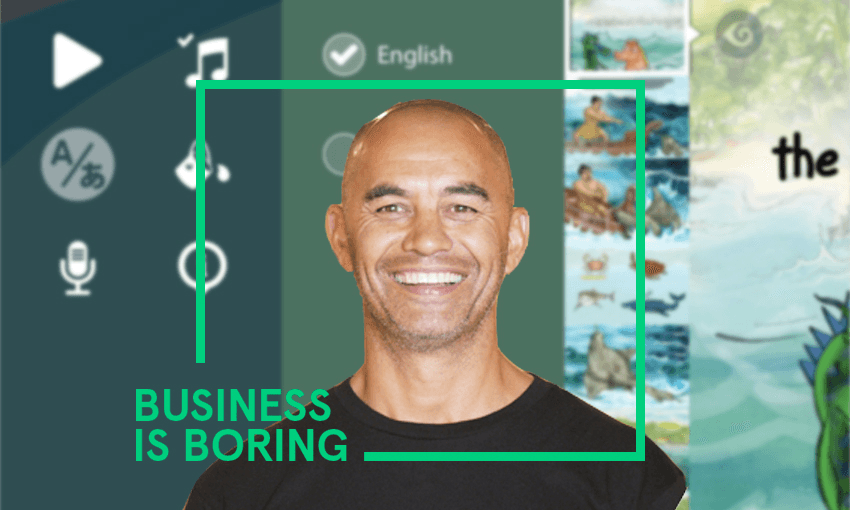Business is Boring is a weekly podcast series presented by The Spinoff in association with Callaghan Innovation. Host Simon Pound speaks with innovators and commentators focused on the future of New Zealand, with the interview available as both audio and a transcribed excerpt. This week he talks to Steven Renata, CEO of Kiwa Digital.
If you look at the digital landscape there has been a lot of innovation. Netflix has changed the way we watch things, we are in a golden age of television, movies keep getting bigger and bigger, musicians have a direct relationship with fans through the internet, and books, well books have moved to the digital age in much the same way they have always been, words on a page – except these days, it’s an electronic page. It’s an odd thing that something so loved, books, hadn’t taken advantage of the possibilities of the internet to become more interactive, engrossing or amazing. Well, one company in Aotearoa saw this opportunity and have built a company that makes exciting digital experiential books, and who have a focus on using modern methods to give traditional languages new avenues to grow and connect today.
They have published wonderful app based titles, like Ngarimu, which brings a graphic novel to life with sound and music and texture; revitalised classics, like the Hairy McLarey books; and have just announced a partnership to help create a hub in Australia to help bring new appreciation to endangered local languages.
To talk about the mission, the work around the world and fostering te reo through new tech, CEO Steven Renata joins me now,
Either download this episode (right click and save), have a listen below or via Spotify, subscribe through iTunes (RSS feed) or read on for a transcribed excerpt.
You hear all those stories of people who learnt English in the Philippines by watching American TV, and the importance of having media in consumers’ own language, even if that isn’t a big enough industry to make lots of media, it’s so important for protecting and fostering and keeping a relationship with the language. What was the leap that took that kind of concept of making sure te reo was included in media, and moving that to the book realm?
Yeah, that was a really interesting part. Again, credit to Rhonda [Kite] as the founder. She saw the opportunity because when the iPad arrived suddenly there was this idea of, OK we’ve done the video to sound synchronization for the dubbing, how about text to sound?
So let’s take a beautiful hard copy book: we’ve got the audio that can go with it, let’s synchronize the audio with every single word, and then take it to a literacy level: the technology that we’ve got proprietary interest around, if you run your fingers across the text it speaks to you word for word, perfectly synchronized.
If you touch a word it says the word, if you double tap the word it phonetically spells it for you. So now we’ve gone yes an audiobook, but there’s levelled learning in there as well. So if we look at three to five-year-olds, at that formative stage they’re going through how to learn to read in any language – they’re very kinesthetic, you notice with a child three to five. I’ve got a 10-year-old now I can remember those days well.
They run their fingers straight away on the text almost without any guidance for the parent. They just know to touch, and suddenly the touch creates sound. They figure out very quick if I swipe my finger I hear a whole lot of noise, if I touch something I hear one sound, if I double tap it I get some other sound. You can really accelerate a child’s reading level using this type of technology which actually comes from what’s called shared reading.

